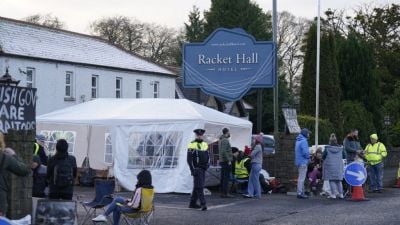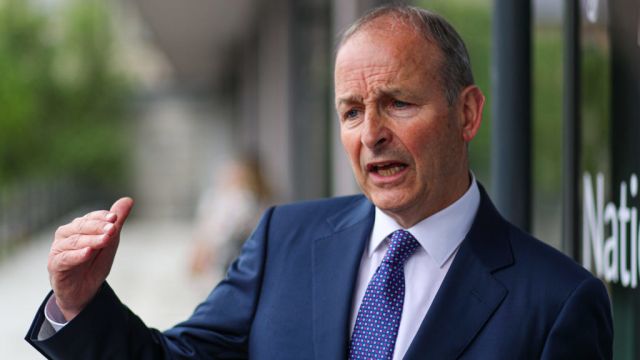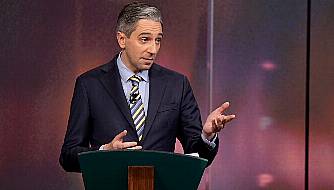Tánaiste Micheál Martin has stressed that Ireland will not tolerate arson attacks on centres accommodating migrants with those responsible for such acts to be subjected to the full weight of the law in our courts.
Speaking in University College Cork, Mr Martin said that Ireland has successfully welcomed asylum seekers for over three decades.
"We have always managed to deal with it. There is no question but that in current times the pressure has become particularly strong because of the increase in the numbers seeking asylum all over Europe and (the numbers) coming to Ireland.
"In addition to the pressures of the Ukrainian War where we have accepted over 100,000 people into Ireland because of Putin's invasion of Ukraine. That is creating pressure.
"I understand that there are concerns and so forth - we have work in terms of communication and in terms of working with communities across the length and breadth of the country.
"However, I would have to say that across the length and breadth of the country there are many centres that are working and that have been well-received within communities and we should not lose sight of that either."
The Tánaiste said that there has been good integration in society and our education system and healthcare facilities have stood up to the test.
He indicated that it is important that the rule of law applies in all cases and that we have an ordered and coherent approach as a society to these issues.
"It is an issue that is not just confined to Ireland, and we have to deal with it.
"We are going to work with communities and, as a Government, we are going to increase capacity and we will be working on that...as we have over the past three decades."
Meanwhile, Mr Martin described as a "dangerous phenomenon" the outbreak of arson attacks on migrant centres.
"Gardaí have successfully dealt with many forms of crime over the years - to find those that are culpable and to not only identify those involved but also that cases can be taken through the courts successfully.
"There is no question that the arson situation is absolutely unacceptable. It is a dangerous phenomenon that is developing and runs contrary to our Constitution and our very way of living in terms of people's entitlement to limb, to life and to property.
"That is a very fundamental thing. It is not something that is in tandem with our values as a people."
The Tánaiste said that young migrants fleeing Africa or the Middle East or elsewhere tend to come (singly).
"Though you also have unaccompanied minors. You also have families.
"I think the idea of mixing has validity and I think that is what you are beginning to see. I think you have to be careful of the language around vetting - vetting itself is fairly preliminary in any event.
"What is important is that we can reassure communities in respect of making sure that any community (which accepts) asylum seekers, (that) services are there, that there is proper communication with the communities and full transparency."
He said that centres have been "working fine" for Ireland for decades.
"There have not been issues in respect of them. People need to reflect on that. This is not a new experience. Yes, the numbers are increasing - there are a higher number coming in. I remember in the late 1990s there was a very significant increase in numbers at that time which was causing concern but we managed to settle it and deal with it.
"I think it is fair to say that, because of the unprecedented wars and violence and dislocation across the world, not to mention climate change, we are seeing increasing and frightening levels of migration across Europe and across the world.
"I am just back from Central America, for example. The Middle East - Lebanon and Jordan are facing millions coming across because of Syria.
"What is important is that we go to sources and try to resource societies and make that governance and quality of life is better. So people don't feel that they have to flee."
Mr Martin rejected any suggestion the Government was trying to "wave a magic wand" to resolve the migration challenges while domestic homelessness figures remained stark.

"I don't think that is fair language, no matter who is saying it. Nothing is done with a magic wand.
"I think this year that over 30,000 houses will be built. If you look at the first start in terms of homelessness there has been tremendous progress made for those who are homeless in terms of getting accommodated immediately through the non-governmental organisations (NGOs) and through voluntary bodies like the Fr McVerry Trust or Cluid or Respond.
"A ring-fenced allocation has been made available for the homeless to get into housing straight away. That has been effective.
"We are concentrating on reducing the amount of time that people are homeless or being in emergency accommodation, that they can get progressed into housing as quickly as possible."







